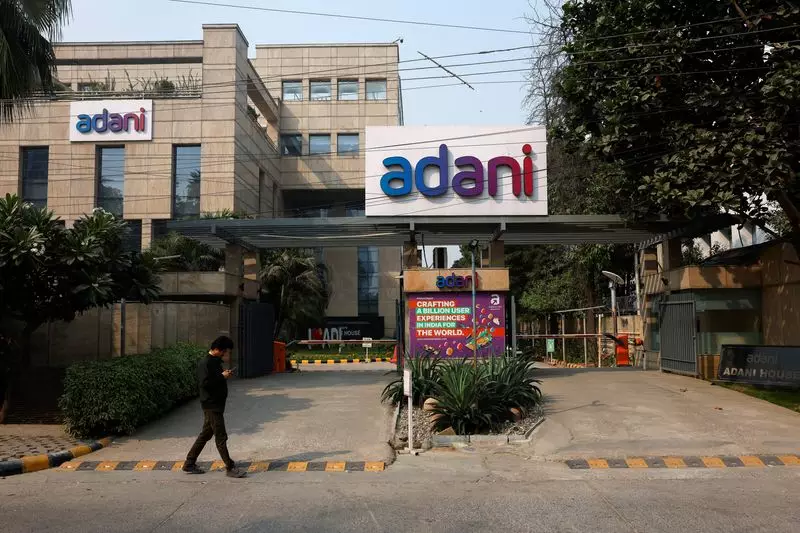The recent allegations of bribery and fraudulent activities against the Adani Group have sent shockwaves through the financial markets. These claims, brought forth by U.S. authorities, accuse the conglomerate’s chairman, Gautam Adani, and several associates of orchestrating a scheme to pay roughly $265 million in bribes to Indian government officials. The implications of these charges are profound, threatening not only the corporate integrity of Adani Group but also the confidence of global investors in one of India’s largest conglomerates.
These allegations emerge at a time when transparency and ethical governance are prioritized in investment decisions. The Adani Group is currently under scrutiny not just for the alleged bribery but also for purportedly misleading statements amidst ongoing investigations. Investors, already jittery about the financial health of firms entangled in scandal, are reacting swiftly. The Adani conglomerate had been considered a powerhouse in various sectors including infrastructure and renewable energy, making this situation all the more alarming.
Investor Response and Market Repercussions
Following the announcement of these allegations, the market’s reaction was immediate and severe. Prices for Adani dollar bonds plummeted to their lowest levels in nearly a year. According to trading data, key assets such as bonds from Adani Ports and Special Economic Zone experienced significant declines, losing up to 2 cents per dollar. Such dips reflect the growing wariness of investors who fear that the legal troubles facing the conglomerate could translate into substantial financial losses.
Bonds maturing in 2027 witnessed a notable decrease, dropping to 88.98 cents on the dollar—a loss that has compounded significantly since the bribery charges became public. Furthermore, the fallout extended to the stock market where Adani’s listed entities, particularly Adani Enterprises, saw a staggering $27.9 billion evaporate in market value over a short span of time. This extreme volatility underscores the vulnerability of companies amidst allegations of misconduct and the fragility of investor sentiment.
Adani Group’s Defense and Future Outlook
In response to the allegations, the Adani Group has firmly denied the charges, labeling them as baseless and without merit. The company has articulated its intention to pursue all available legal avenues to combat what it claims is an unjust attack on its reputation. However, despite these denials and efforts to maintain market confidence, the reality is the damage may already have been done.
The broader implications extend beyond financial metrics; they touch on issues of governance and ethical management within large-scale enterprises. Future investor confidence in Adani Group is likely to hinge not only on their legal outcomes but also on their ability to improve transparency and governance practices moving forward.
The unfolding scenario surrounding Adani Group serves as a cautionary tale about the potential volatility that accompanies corporate governance failures. As the situation develops, it will be crucial for the group to not only navigate the existing allegations but also restore faith among investors and the market at large. The journey toward reclaiming credibility will be as complex as the web of allegations that have emerged.

